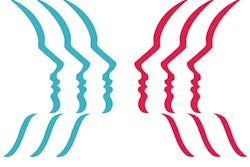In her practice at Teleradiology Solutions, lead author Dr. Anjali Agrawal sees a wide spectrum of emergency conditions and has always felt limited when clinicians don't provide an adequate clinical history for patients, she said. It can also be very challenging to follow up on these cases due to differing time zones and the inability to remotely access hospital information systems, said Agrawal, a senior radiology consultant.
The researchers initially embarked on the study to provide their referring physicians with data to underscore the importance of clinical history in formulating an accurate radiologic opinion. They found some unexpected results, however, after reviewing more than 800 cases that referring groups had sent for quality assurance (QA) review.
"To our surprise, we found that an inadequate clinical history did not relate to either increased frequency or severity of radiologic error," Agrawal told AuntMinnie.com. "Counterintuitively, the proportion of detailed histories was much lower for cases not referred for QA review and those found to be error-free after QA review, compared to those found to have errors on QA review."
The group believes that clinicians adjust the amount of history they provide to the complexity of cases; the more complex cases have more detailed histories as well as a higher frequency of errors, she said.
"Experienced radiologists similar to those in our practice do not seem to require much clinical information to reach an accurate radiological diagnosis in the emergent setting," Agrawal said. "However, the applicability of our results to other radiology specialties or for radiologists in early years of practice needs to be separately tested."
Learn more by attending this Sunday morning presentation.



















